What’s behind the dramatic rise in L.A. County’s homeless population
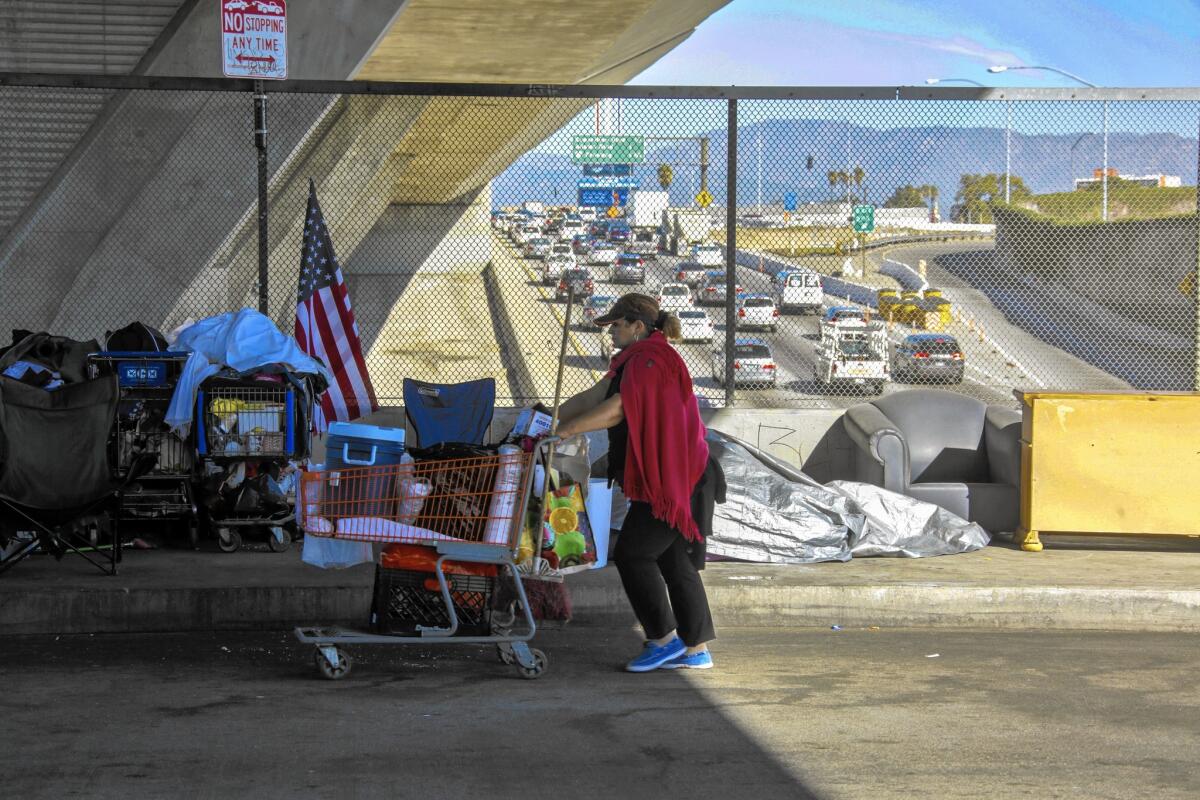
"There's no sugarcoating the bad news," Los Angeles Mayor Eric Garcetti said Wednesday in reaction to a new count that found Los Angeles County’s homeless population has soared 23% over last year.
Here’s a breakdown of the findings:
Geography
Homelessness grew in many parts of the county. But rises were largest in the Antelope Valley and eastern L.A. County and the lowest in the South Bay and San Fernando Valley. Within L.A, homelessness rose in all but three city council districts that encompass parts of the San Fernando Valley and the Westside.
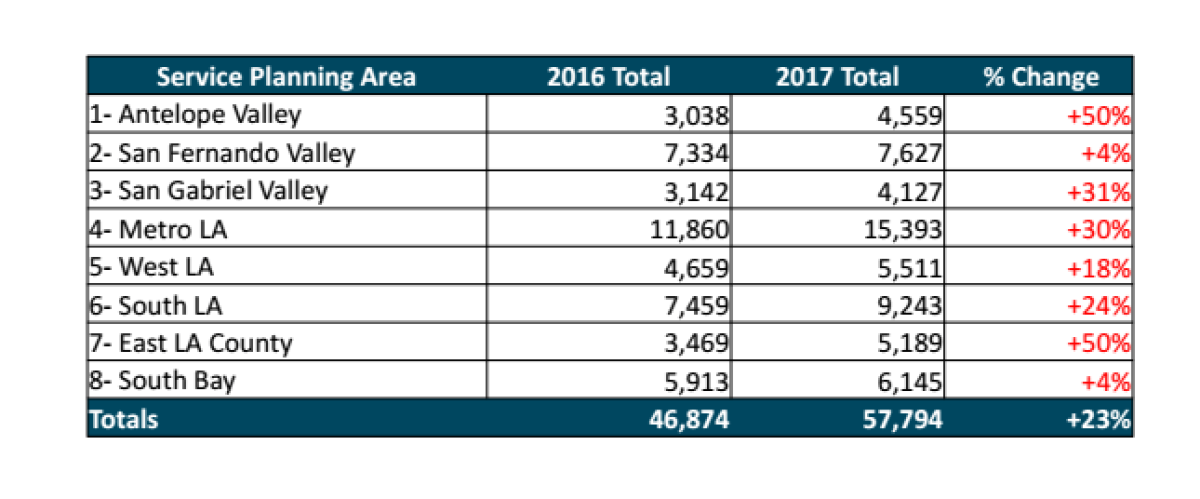
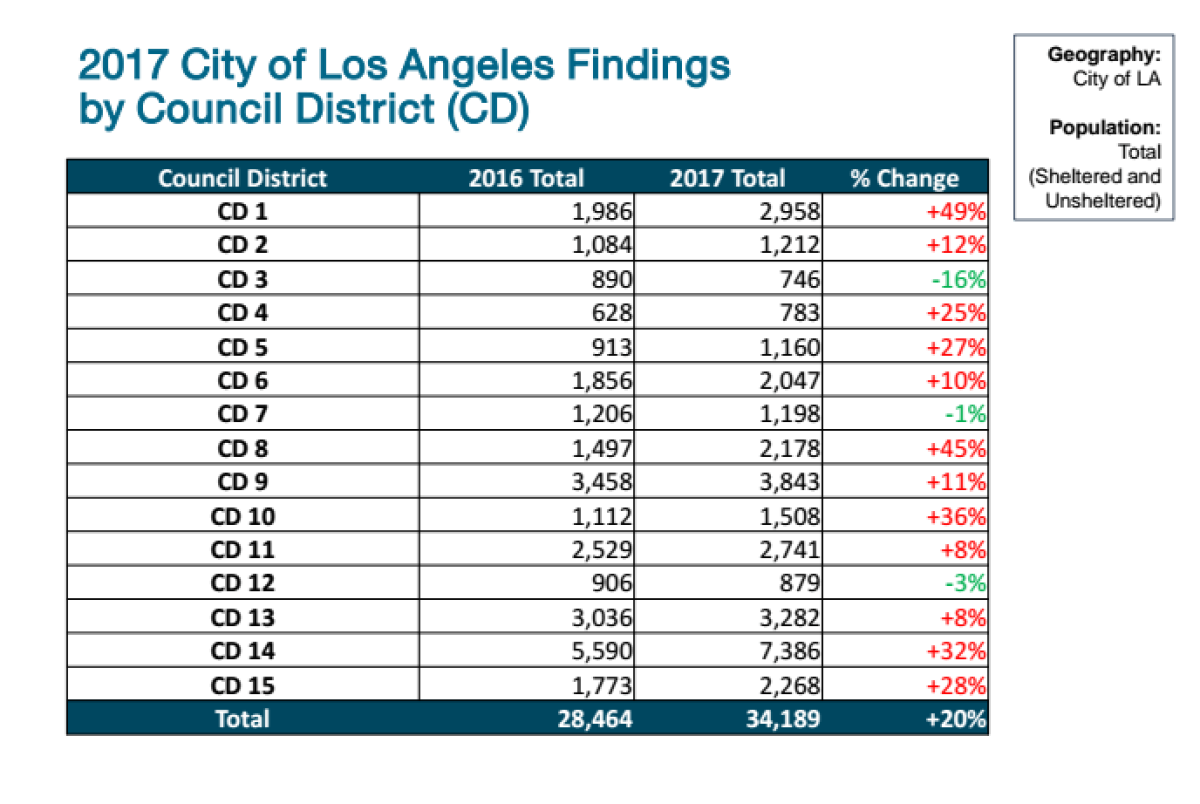
Age and demographics
The biggest increases in the homeless population were among people 24 and younger. The biggest segment of the homeless population remained those 25-54 years old. The most common dwellings remained makeshift shelters and campers. The population of homeless veterans also rose.
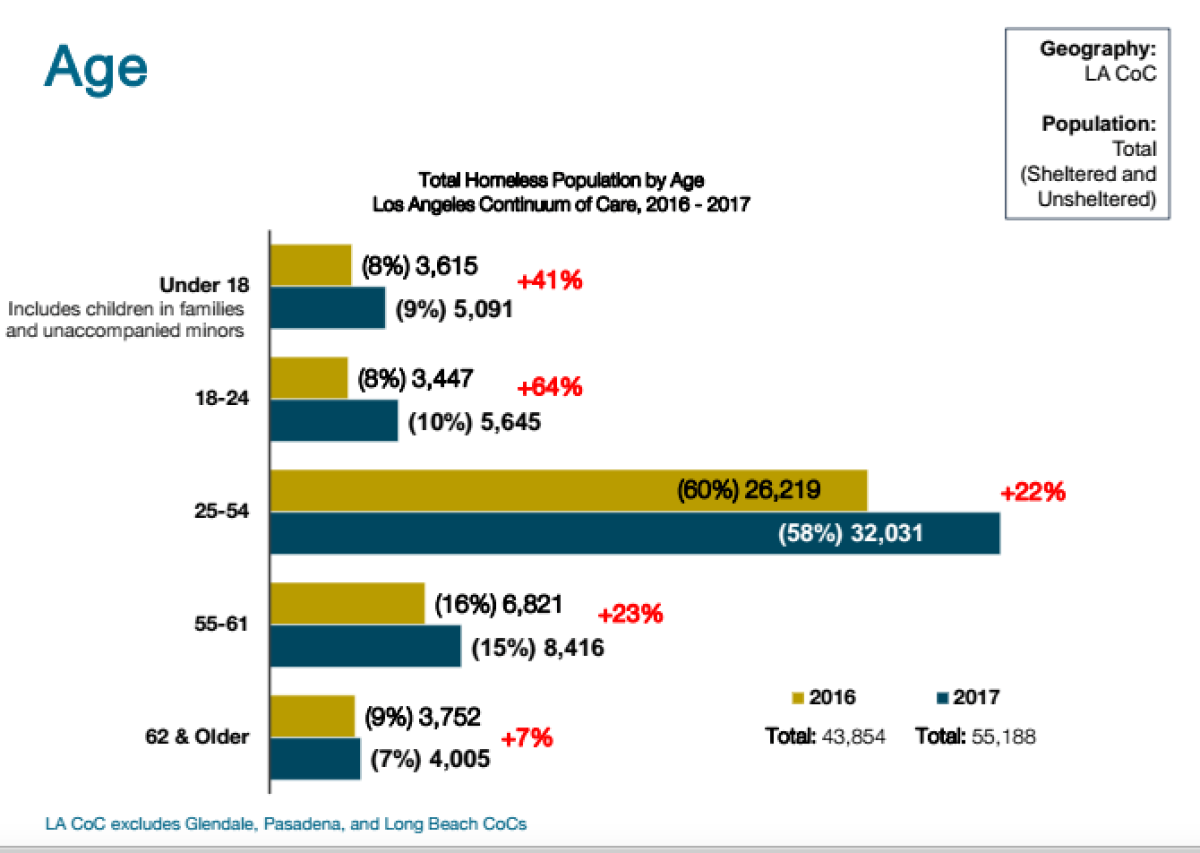
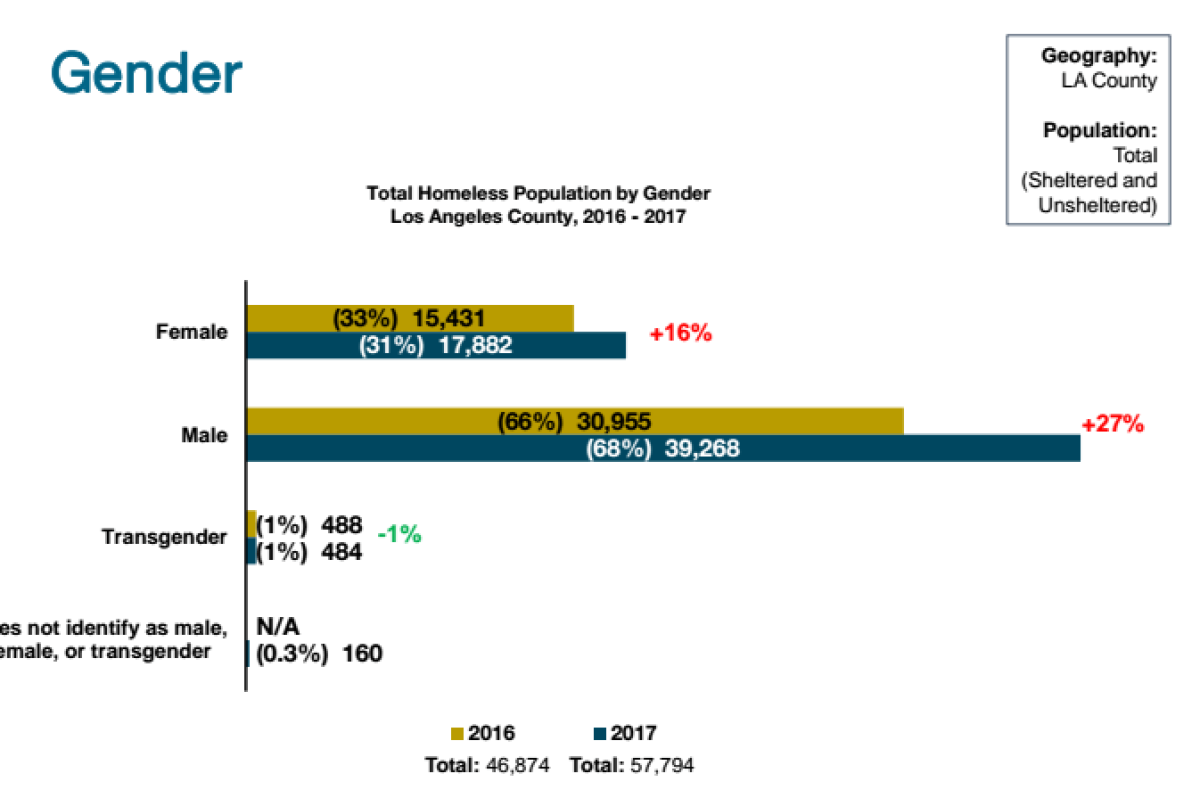
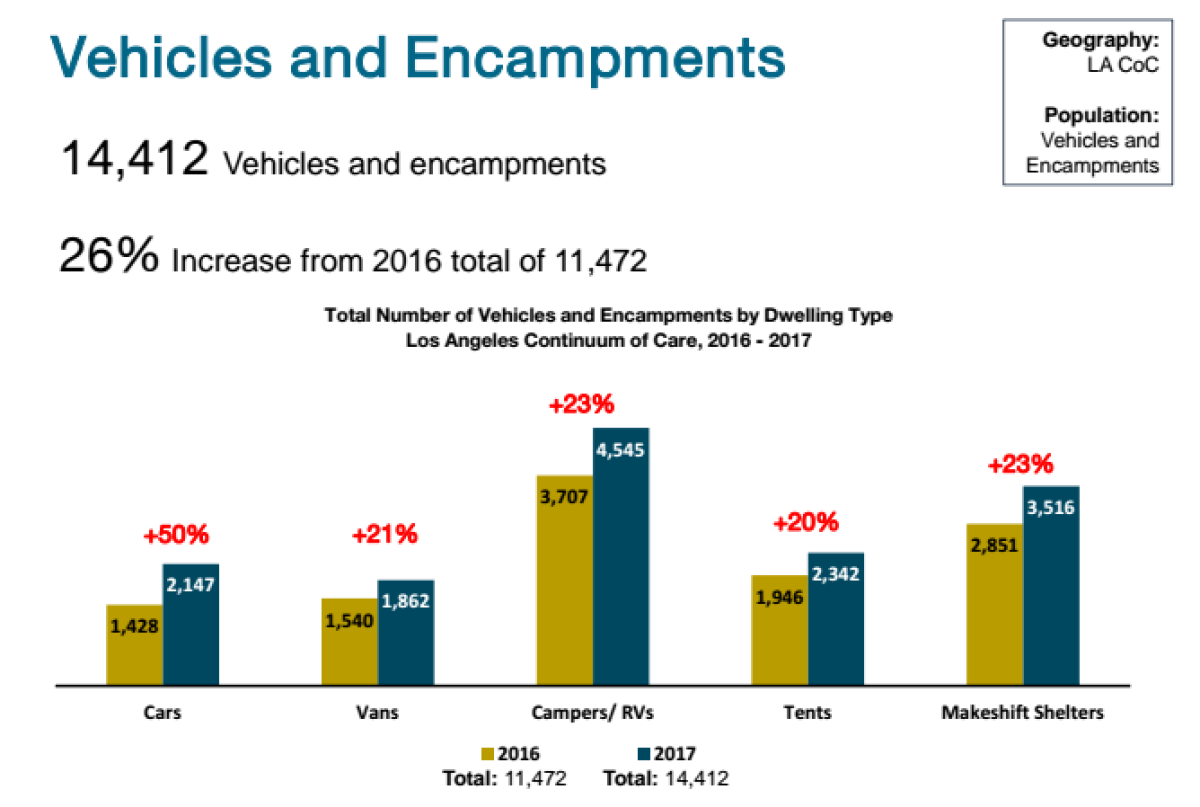
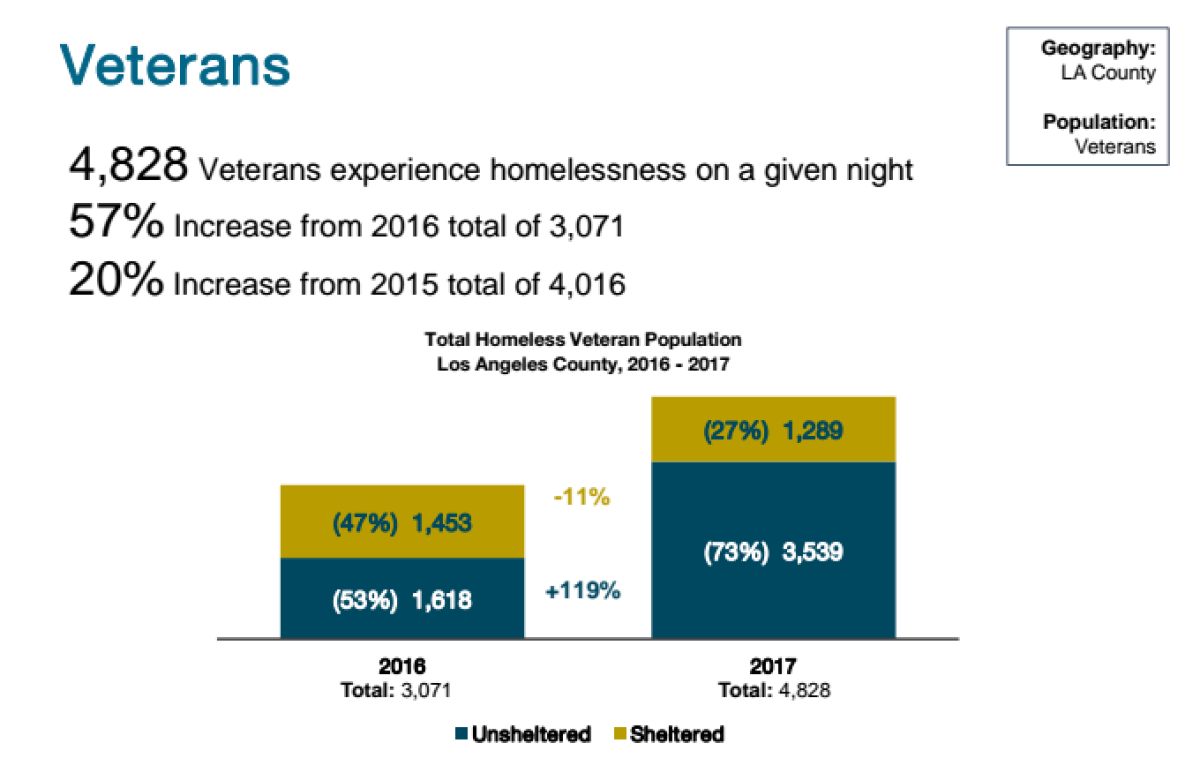
Race
Blacks made up the largest group of homeless people in the county, followed by Latinos and whites.
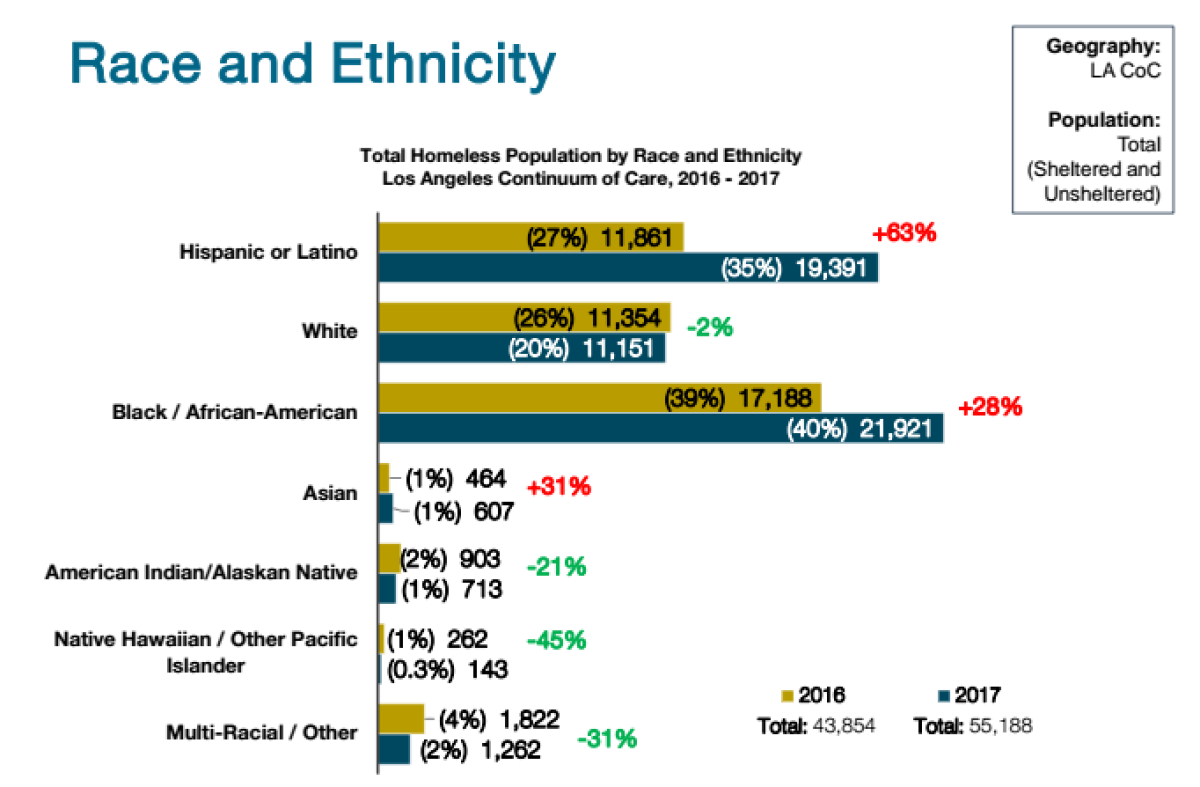
Why the big increase?
Homeless officials and political leaders pointed to steadily rising housing costs and stagnant incomes as the underlying cause.
"We can't let rents double every year. I was particularly disappointed to see veteran numbers go up," Garcetti said.
The Homeless Services Authority pointed to economic stress on renters in the Los Angeles area. More than 2 million households in L.A. and Orange counties have housing costs that exceed 30% of income, according to data from Harvard University’s Joint Center for Housing studies included in the report.
According to the nonprofit California Housing Partnership Corp., median rent, adjusted for inflation, increased more than 30% from 2000 to 2015, while the median income was flat.
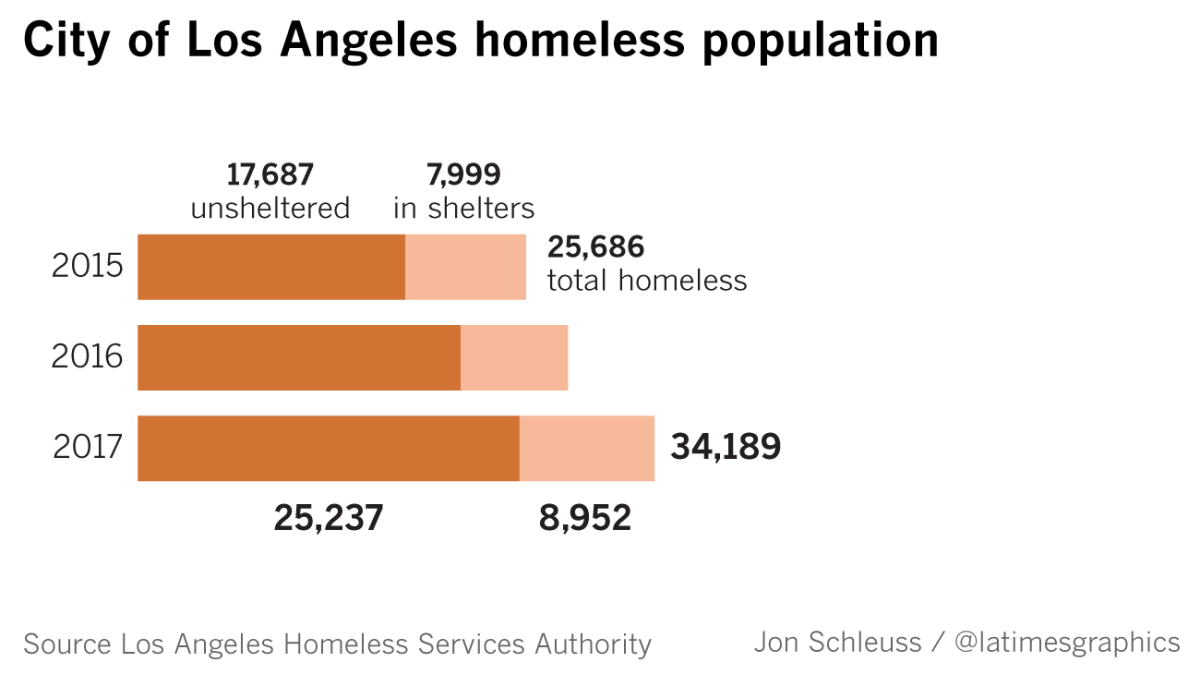
Is there help on the way?
The only hopeful sign of homeless initiatives making headway was the strong increase in the number of homeless families being sheltered. Though the population of homeless families increased nearly 30%, those without shelter dropped 21%.
The 2017 count, conducted in January, will become the baseline for a multibillion-dollar homeless program funded by two successful ballot measures.
Proposition HHH, approved by Los Angeles voters in November, will provide $1.2 billion in bond proceeds over a decade to build permanent housing. Measure H, approved by county voters in March, will provide an estimated $3.5 billion over 10 years for rent subsidies and services. The county Board of Supervisors is scheduled to vote on budgets for the first three years on June 13.
The combined initiatives aim to create or subsidize 15,000 housing units and pay for services to support those living in them.
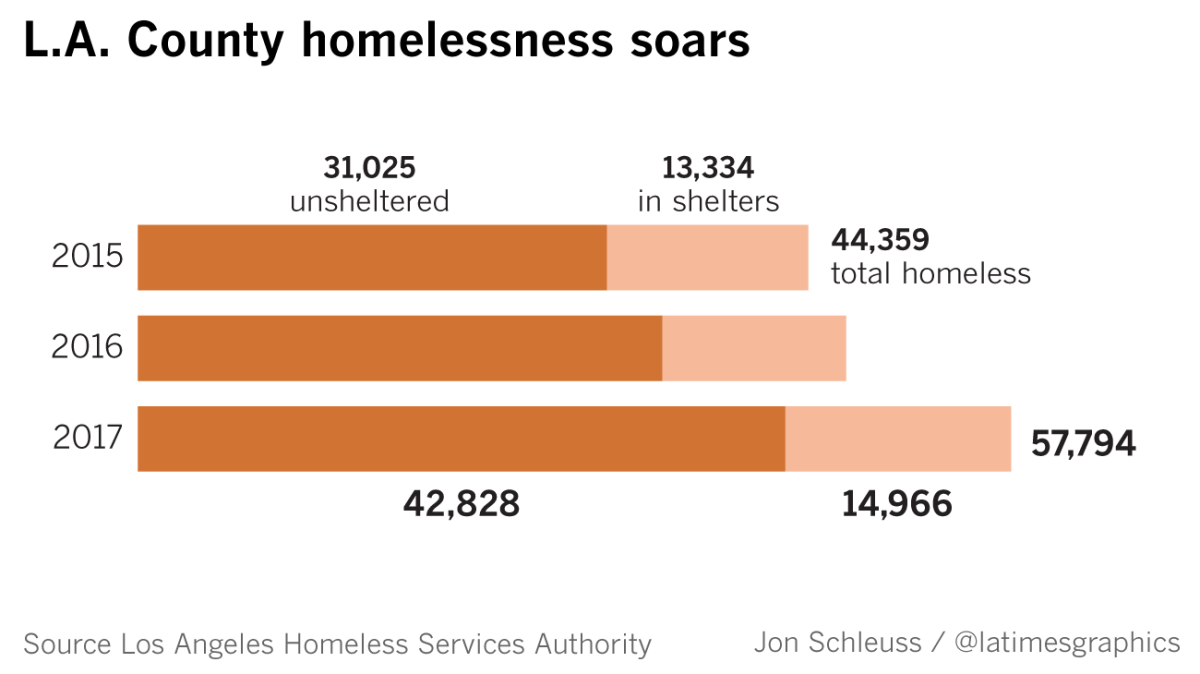
Not just an L.A. problem
Earlier this month, Orange County reported an 8% increase in its homeless population over two years. More than half of the county’s nearly 4,800 homeless people were living without shelter.
Sign up for Essential California
The most important California stories and recommendations in your inbox every morning.
You may occasionally receive promotional content from the Los Angeles Times.








